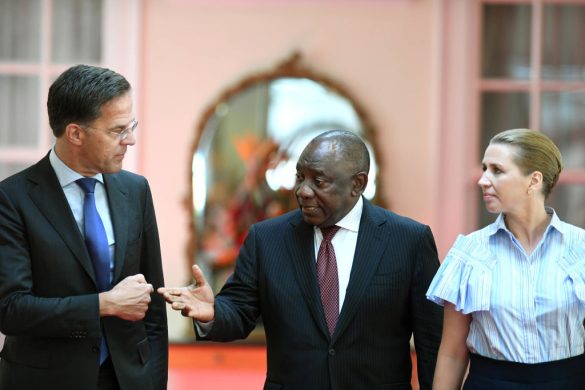Det ville nok ikke gå i Danmark, men i Elfenbenskysten er et statsligt lotteri ifølge Verdensbanken så populært, at unge mennesker står i kø for at deltage, for gevinsten er adgang til seks måneders arbejde og uddannelse i det vestafrikanske kakao-land.
ABIDJAN, March 26, 2014 (World Bank): Young Ivorians are more than ready to take charge of their own destiny, at least when given the right opportunities. Take, for example, 21-year-old Prince Brokou from the Yopougon district of Abidjan, the country’s economic capital.
When Prince was recruited in 2013 under a labor-intensive public works program funded by the World Bank, the young man jumped at the chance.
As he worked, he discovered his entrepreneurial spirit. “I had never had a job before. My family struggled to provide food for me, and I couldn’t even afford to buy soap. I used my first two months of wages to acquire two mobile phone kiosks. Now they provide jobs for my two brothers and will be an income source for me once my contract expires,” he says.
Lodtrækning for at sikre retfærdighed
AGEROUTE, the state-owned road management agency responsible for developing and maintaining Côte d’Ivoire’s road network, was enlisted to implement the program.
In operation since 2002, the company takes advantage of the country’s abundant (overflod af) manpower, rather than machines, to maintain the roads.
Over the 2012-2014 period, the company will employ a total of 12,500 young Ivoirians, 30% of them women, as part of the Emergency Youth Employment and Skills Development Project (PEJEDEC).
Once hired, the young people are given the title “brigadier de salubrité” (sanitetsvagt). All young people between 18 and 30 years of age can apply. To assure fairness, beneficiaries are chosen through a public lottery. The program is so popular that some young people admit to praying all night that they will be among those selected.
As Côte d’Ivoire gets back on its feet following a decade of political, economic, and social unrest, tackling youth employment has become a priority,” says Hamoud Abdel Wedoud Kamil, a World Bank’s Senior Education Specialist and task leader of the PEJEDEC project.
Arbejdet giver kompetencer og ny viden
“One of the key objectives of this program is to provide participants new skills that would make them more employable, increase their earning potential and, in some cases, give them the resources to start their own businesses,” he adds.
In addition to guaranteeing six consecutive months of income to those hired — who receive monthly wages amounting to CFAF 60,000 (approximately 124 US dollar) — the labor-intensive public works program (LIPW) provides many other benefits.
For example, young hirees attend life skills training sessions that raise awareness about such issues as civic responsibility and citizenship, HIV/AIDS, the environment, and public health.
Some of the brigadiers also receive intensive training in job-search techniques and information on wage employment opportunities; others receive basic entrepreneurial training to help them set-up small businesses upon graduation.
For instance, Kamate Vazoumama, a young brigadier in the Koumassi district of Abidjan, is now more attuned to the issue of urban waste. “I used to throw my garbage in the street. Now I never do that,” says Kamate.
As for Prince Brokou, the job was his first experience of team spirit and also built up his self-confidence. “I felt completely useless to my family, and I didn’t know what to do with my life. I often wondered, ‘Am I stupid?’ Now I know that I am not stupid; I just didn’t have the resources to launch a project,” he says.
Evaluating the effectiveness of the program
Læs videre her:
http://www.worldbank.org/en/news/feature/2014/03/26/a-first-job-for-young-ivorians














